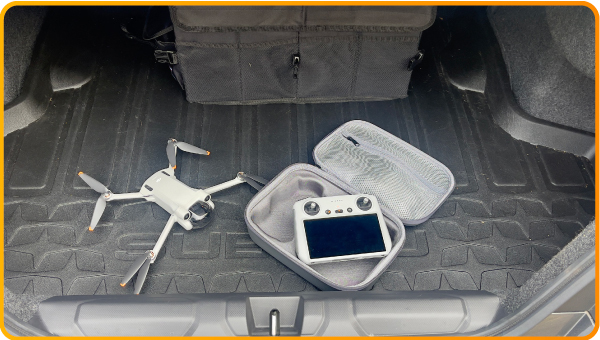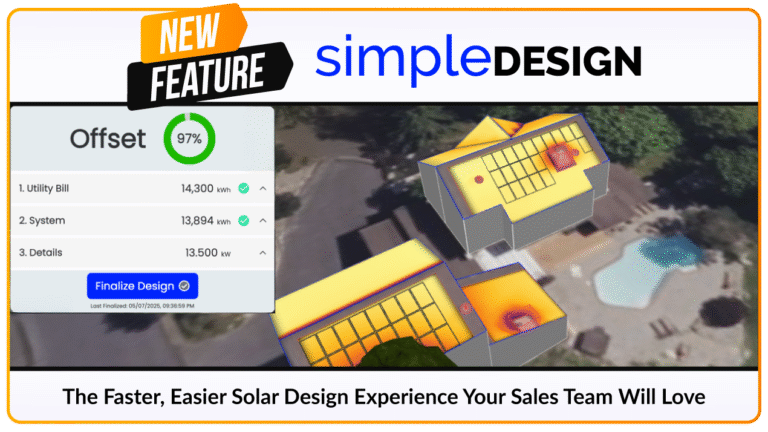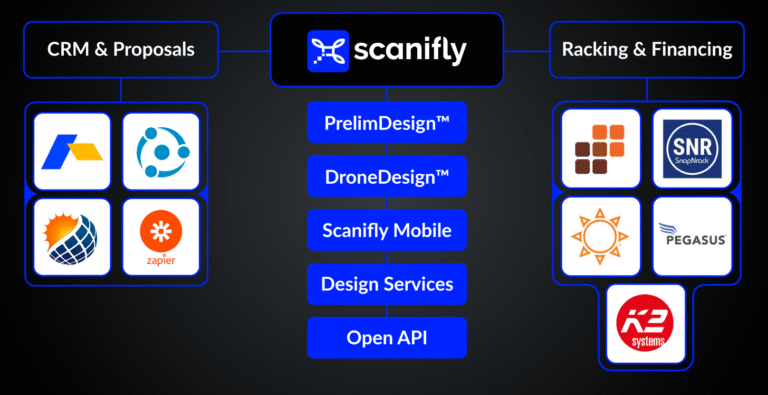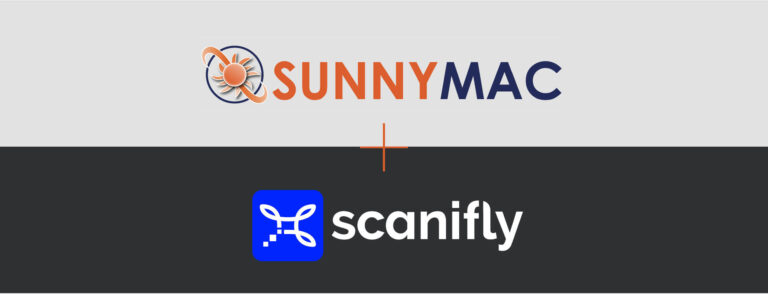In an industry where trust and accuracy are paramount, one veteran solar sales rep has a provocative question: “Why wouldn’t you use a drone?”
Dar Hubsch, a top-performing sales representative at Cape Fear Solar Systems, doesn’t mince words when discussing the role of drones in solar sales. “Any salesperson who wants to perform at a high level is shooting themselves in the foot if they don’t have a drone in their trunk at all times.”
It’s a bold statement, but one backed by real-world experience and compelling results. As the solar industry continues to evolve, forward-thinking solar sales reps are discovering that incorporating drone technology into their sales process isn’t just about staying ahead of the curve—it’s about fundamentally transforming the customer experience and protecting their commissions.
The Real Cost of Remote Design
Traditional solar sales often rely heavily (if not exclusively) on remote imagery and LiDAR data for initial system designs. While this approach is fast and seemingly convenient, it comes with notable risks. Remote imagery can be outdated by 1-2 years, skewed, or blurry, leading to inaccurate assessments and, ultimately, change orders that can claw back commissions.
Consider this scenario: A sales rep uses satellite imagery for a contract design, knowing it will need adjustment when the team arrives on-site. What was promised as 100% offset drops to 80% after accurate measurements are taken. The result? A frustrated customer, a damaged reputation, and potentially a cancellation and lost commissions.
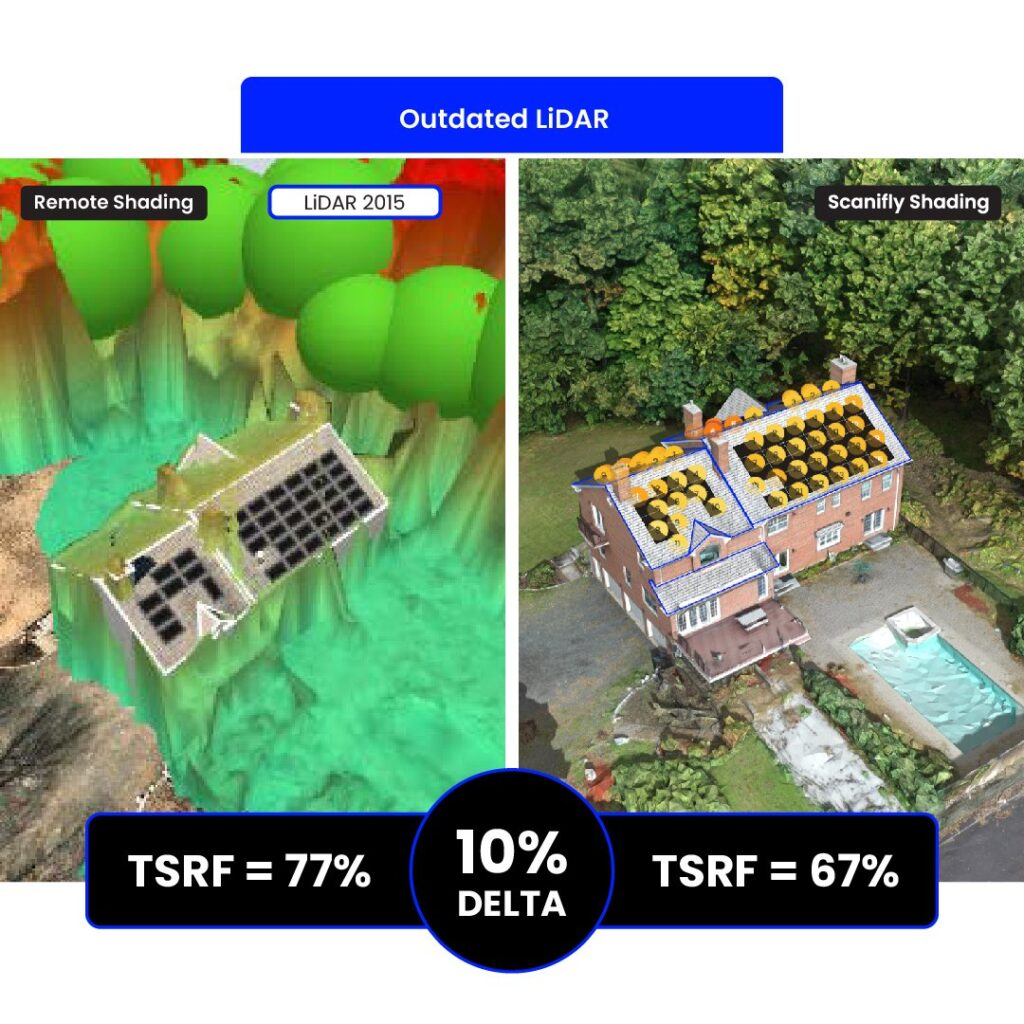
Drones: Let Accuracy Be Your Best Closer
“I mean, it’s not that tough, not that complicated,” explains Hubsch. “I bought a refurbished DJI Mini drone for $700 at Best Buy. If you’re working on commission, that’s a worthwhile investment in your own business to be able to do this the right way from the start.”
Here’s how drones are transforming the solar sales process:
1. Building Instant Credibility
When comparing two salespeople—one who shows up with a drone and demonstrates a commitment to accuracy, versus another who relies solely on remote imagery—the choice becomes obvious for homeowners. As Hubsch notes, “It’s a great soft close. It’s a natural next step without asking for a financial commitment.”
The drone becomes a powerful differentiator, creating memorable moments during sales visits. “Once or twice a week, I just have a great moment where somebody’s watching me fly the drone, and kids are out having fun with me,” Hubsch shares. “I had a moment where I was flying the drone for a prospect, and another couple that just signed up two weeks ago walked by and said, ‘Nice work, another person in the neighborhood’s going solar!’ When those kinds of moments happen, that’s when people sign contracts.”

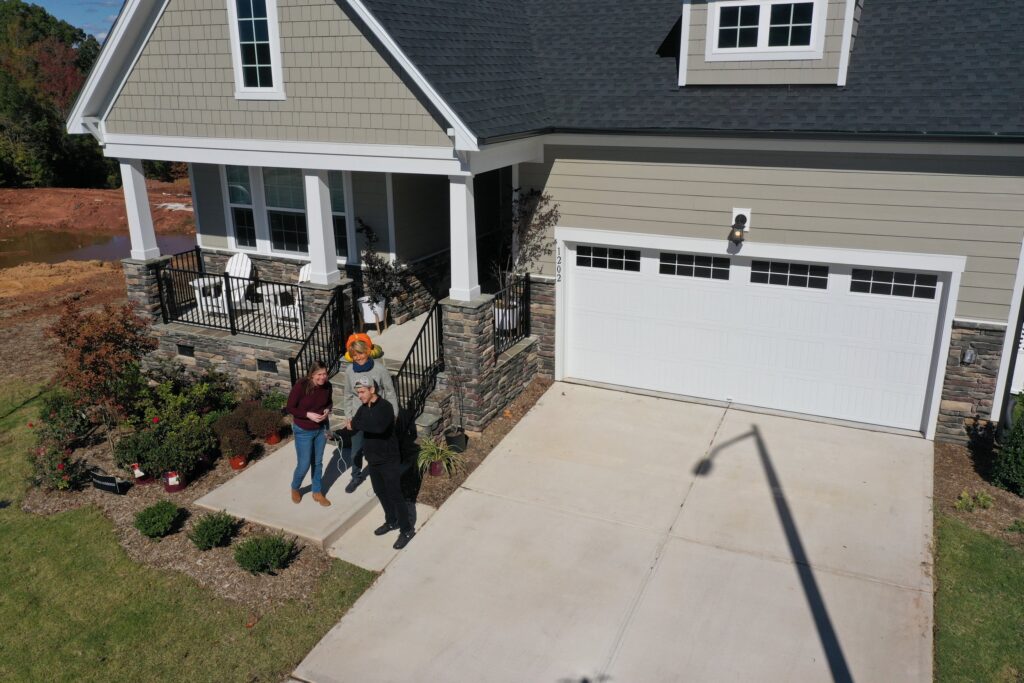
2. Eliminating Change Orders and Protecting Commissions
By capturing accurate, real-time data during the initial site visit, sales reps can:
- Ensure designs are based on current roof conditions, not outdated imagery
- Identify and account for all potential obstructions
- Provide accurate production estimates that won’t need revision
- Avoid the dreaded commission clawbacks from change orders
3. Accelerating the Sales Process
Traditional solar sales often involve multiple site visits: one for the initial assessment, another for detailed measurements, and potentially more for revisions. With drone technology, sales representatives can:
- Capture comprehensive site data in a single visit
- Generate accurate designs without waiting for a survey team
- Present confident production estimates based on real data
- Close deals faster with fewer touchpoints
“I want to be able to wake up at 6 a.m. and just do what I need to do,” says Hubsch. “I never want to be waiting on someone else to help me close a deal. What successful salesperson wants to be on the phone with an engineer waiting to get emailed a design?”
The Broader Impact on Solar Operations
The benefits of drone usage extend beyond individual sales performance. Companies that have embraced drone technology in their sales process report:
- 3X single-day survey capacity while maintaining complete accuracy
- 95% of new growth driven by happy customer word-of-mouth
- 20-45 minutes saved per site visit
- Elimination of information loss between sales and design teams
A Quality-First Approach to Solar Sales
The solar industry has seen a concerning 700%+ surge in fraud complaints mentioning “solar panels” since 2018. This statistic underscores the critical importance of building trust and delivering accurate proposals from the start.
“If you’re salesperson “A” who comes to meet the customer, understands their needs, is competent enough to look at their electrical panel, and flies a drone to get accurate measurements—versus salesperson “B” who’s just pushing for a quick close with remote designs—who is going to go with the second guy? Nobody,” Hubsch emphasizes.
Getting Started with Drones
For sales representatives interested in incorporating drones into their process:
- Investment is minimal compared to the potential return (a quality drone can cost less than $1,000)
- FAA licensing can be obtained in less than 15 hours
- The learning curve is effortless with modern drone technology
- The impact on close rates can be significant—some reps report 20% increases almost immediately
The Future of Solar Sales
As financing companies become increasingly strict about system performance and production estimates, accurate shade analysis and designs are no longer optional—they’re essential for getting projects approved and funded. Sales representatives who can provide this level of accuracy from the first meeting are positioning themselves for long-term success.
“I think ideally you get to a point where consumers start asking for this,” Hubsch reflects. “An educated consumer should. We’re still a ways away from that. But I think that could become the norm within a couple of years.”
Are You Ready to Differentiate?
The question isn’t whether to incorporate drone technology into the solar sales process—it’s why wait? As Hubsch puts it, “There are not as many high-quality solar sales jobs as you might think. So if you want to differentiate yourself and work for a reputable company, don’t you want to show up and say, ‘I have this skill that ensures perfect accuracy’?”
For sales reps looking to differentiate themselves, protect their commissions, and provide the highest level of service to their customers, having a drone in the trunk isn’t just an option—it’s becoming a necessity. The investment is minimal, the impact is immediate, and the alternative is becoming increasingly obsolete in an industry where accuracy and trust are everything.

